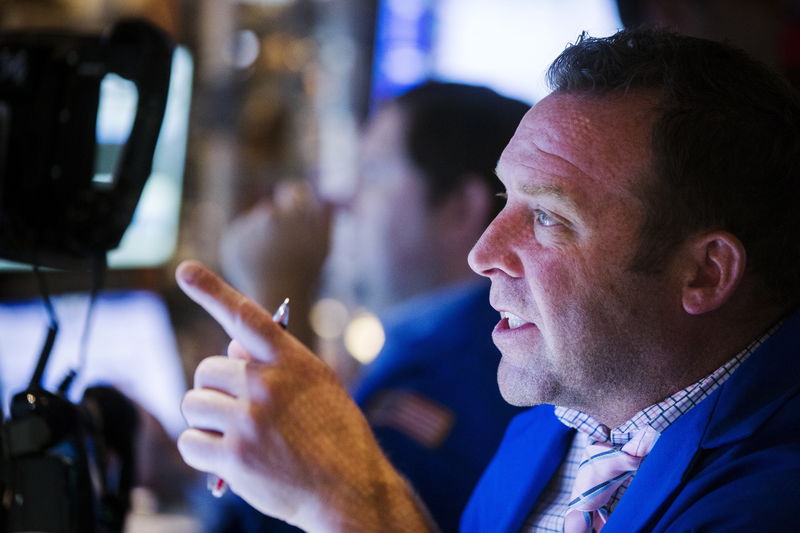By Geoffrey Smith
Investing.com -- Gold prices hit their highest in nearly eight years as investors pile into the safest of havens even after one of the biggest-ever one-day rallies in U.S. stocks. Global stock markets have followed the U.S. higher overnight on increasing signs that the Covid-19 pandemic is peaking. Oil prices are also rising again on hopes that major producers will cobble together a deal on cutting output by Friday. The euro zone's finance ministers are set for another bust-up over common debt issuance, and U.K. Prime Minister Boris Johnson is stable and conscious after a night in intensive care being treated for Covid-19. Here's what you need to know in financial markets on Tuesday, April 7th.
1. Gold hits highest since 2012
Gold prices hit their highest in nearly eight years, as a wave of money continued to flood into exchange-traded funds, bars and coins on expectations of a prolonged period of low or negative interest rates.
Gold futures for delivery on the Comex exchange hit a high of $1,742.20 a troy ounce overnight before retracing to hold just above $1,702 an ounce by 6:35 AM ET (1035 GMT). The premium over spot gold prices in London widened to almost $50 an ounce, amid further reports of trouble in sourcing enough physical gold to cover all the claims of U.S.-registered ETFs.
The latest surge came on the back of reports on Monday that the U.S. is preparing a fourth economic support package that could be worth around $1.4 trillion.
The sharp widening of budget deficits in the U.S. and Europe to fund the response to the Covid-19 crisis has encouraged heavy betting on currency debasement – even though most economists agree that the near-term effect of the crisis is more likely to be deflationary, rather than inflationary.
2. Oil rises further on hopes of output restraint deal
Crude oil prices rebounded again amid hopes that the world’s major producers will somehow cobble together an agreement to cut supply at a virtual meeting on Thursday. U.S. crude futures rose 3.1% to $26.91 a barrel, while Brent rose 2.4% to $33.83.
Reuters quoted sources within the OPEC+ format (which includes Russia) as saying that an agreement is likely, as long as other countries - most of all, the U.S. – join in.
Other reports suggested that the OPEC+ countries also want cuts from Canada and Brazil.
The inability of the U.S. government to impose a nationwide output cut has led some analysts to suspect that the deal will aim to target a price that is still low enough to squeeze marginal U.S. shale producers into bankruptcy. Some have observed that the current use of drilling rigs is consistent with a drop in U.S. production of 1 million barrels a day by the third quarter.
A meeting of G20 energy, which would include all the countries relevant to the discussion except Norway, is scheduled for Friday.
3. Stocks set to open higher as U.S. support package, European virus data lift spirits
U.S. stocks are set to open markedly higher again, supported by the reports of a fourth economic support package that broke in the U.S. afternoon on Monday.
The news, which helped to allay doubts about holes in the packages announced so far, drove one of the biggest ever rallies in the Dow Jones Industrials on Monday, pushing all the benchmark indices over 7% higher.
By 6:35 AM ET, the Dow Jones 30 Futures was up 804 points, or 3.6%, while the S&P 500 futures contract was up 3.1% and the Nasdaq 100 futures contract was up 2.9%.
European and Asian markets have also rallied, taking their lead from the U.S. and from increasing data points in Europe that suggest the Covid-19 epidemic is peaking. Spain posted four straight days of declining deaths, while Italy and Germany announced further falls in new infections, and Denmark joined Austria in planning to lift some of its lockdown restrictions.
4. Johnson remains in intensive care
U.K. Prime Minister Boris Johnson remains stable and conscious in intensive care, after being hospitalized on Sunday evening in London.
Against a backdrop of growing doubt about the reliability of information being provided by the government Cabinet Minister Michael Gove insisted on Tuesday that the Prime Minister was not on a ventilator and promised a full statement in case his situation gets any worse.
Sterling and U.K. stocks were equally unfussed by the episode, joining in a broad risk-on rally in European markets. European Union finance ministers are due to hold another conference call about their pandemic response later Tuesday.
5. Fed moves to ease EM squeeze with $60 billion repo line to Indonesia
The Federal Reserve agreed to provide a $60 billion repo line to Indonesia, whose financial markets have suffered some of the worst stress in the emerging world as the Covid-19 virus has spread across one of Asia’s most important economies.
The country has been criticized for its relatively low level of testing for Covid-19 among its population of over 200 million. The official death toll of 221 is widely believed to understate the actual number (as in many countries, due to the exclusion of victims who do not die in hospitals).
The dollar had risen by some 20% against the Indonesian rupiah since the virus exploded in January. It has made similar, if less dramatic gains against many other emerging currencies, as markets price in a sudden stop of capital flows due to the looming recession. According to data from the International Institute for Finance in Washington, investors pulled some $83 billion from emerging markets in March alone.
